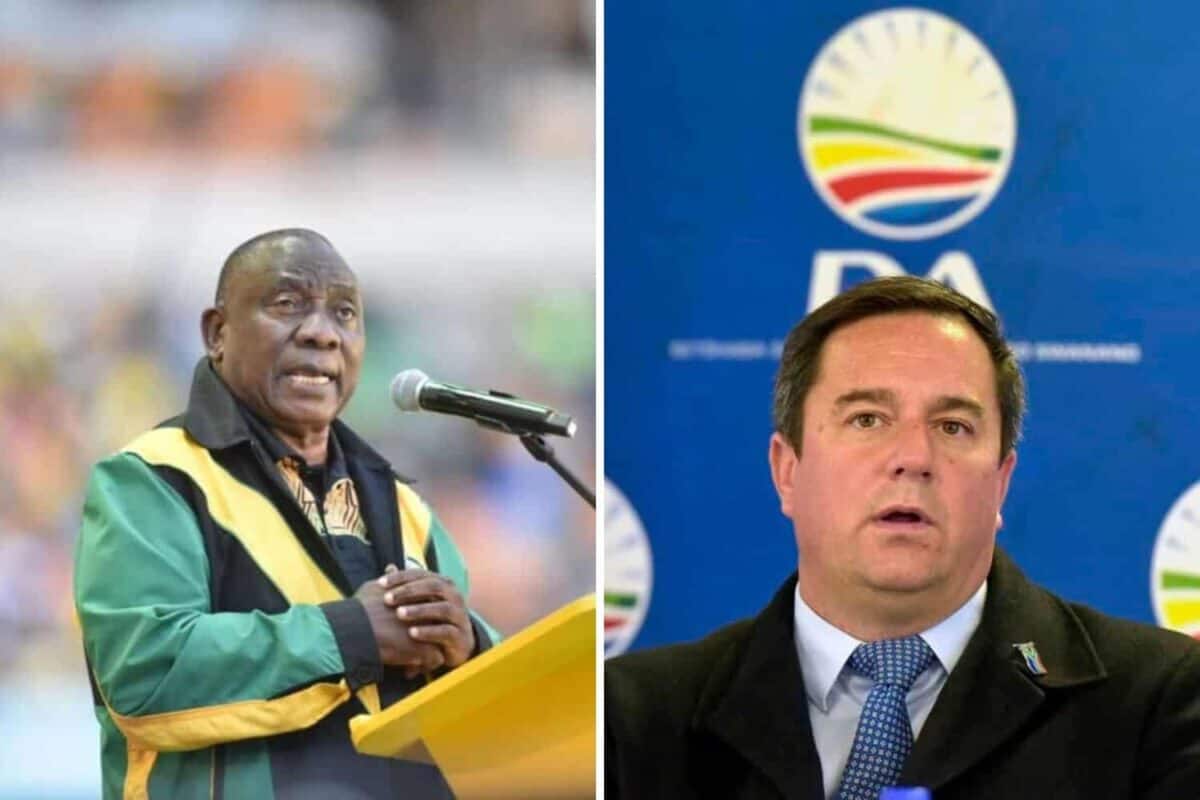Amid rising tensions, Roelf Meyer urges ANC and DA leaders to prioritise national interests over party agendas in the GNU.
A mid growing tensions between the ANC and the DA over the country’s policy direction in the government of national unity (GNU), the main political parties have been advised to learn from the past.
Former minister of constitutional affairs and communications Roelf Meyer has cautioned the GNU leadership to put national interests above political party agendas.
GNU ‘doing well’
Speaking to The Citizen on the sidelines of the three-day Kgalema Motlanthe Foundation Inclusive Growth Forum in the Drakensberg, the former defence minister under the apartheid regime said parties could “not agree on everything”.
“As long as there are mechanisms to address differences, they should be able to continue,” Meyer added.
“While my impression from the outside is that the GNU is doing well, I think the national interest should come before party agendas.”
He said he regretted the National Party’s (NP) decision to leave the GNU in 1996 during the Nelson Mandela presidency.
“This led to the NP’s collapse and disappearance from the political scene.
“My view is that South Africa depends on the success of the GNU and all parties should stay committed,” Meyer said.
Over the weekend, the Presidency and DA ministers in the GNU clashed, with party federal council chairperson Helen Zille fuelling the flames from the outside.
ALSO READ: ‘GNU must foster dignity’: Political leadership challenged to empower all South Africans
Presidential spokesperson calls ministers to order
Presidential spokesperson Vincent Magwenya reined in the DA Cabinet members, Home Affairs Minister Leon Schreiber and his public works and infrastructure counterpart, Dean McPherson, on social media platform X.
Magwenya called Schreiber to order after he claimed to have signed “an historic agreement granting visa-free access to South Africa for Ukrainian holders of diplomatic, official and service passports – and vice versa.
“We continue to see Ukraine as a valued ally, as a valued friend, who supported us right from the beginning, from the days of our struggle against apartheid, right through to now.
“I look forward to President Ramaphosa adding his signature to this agreement in the coming week so that we can conclude this important step forward for our two peace-loving nations,” Schreiber said.
But Magwenya reminded the minister that he was not authorised to sign the agreement or an nounce it in the first place.
This came after DA leader John Steenhuisen criticised Ramaphosa’s remarks during the Brics summit about Russia being a “valuable ally”.
Meyer and Ramaphosa played a central role at the Convention for a Democratic South Africa talks at the World Trade Centre in Johannesburg in the 1990s – paving the way for the country’s first democratic elections in 1994.
ALSO READ: Expert cautions DA on Israel-Gaza position ahead of national dialogue
Jonas ‘throwing bombs while smiling’
At the weekend, Professor Nick Binedell of the Gordon Institute of Business Science said former deputy finance minister Mcebisi Jonas – now MTN chair – was “throwing bombs while smiling”.
At the conference Jonas said: “Now that we have a GNU, some people seem to think we have achieved a reset by default.
“This new governance arrangement is not a change in direction or a determination of a new agenda for the country.
“For most of the players, it is just better to be inside the tent than outside.”
On whether the GNU could sustain and achieve coherence, Jonas said it “certainly cannot do so if the main parties cling to old ideas and politics”.
“There must be a concerted effort to build a new political centre that better represents the needs and aspirations of the majority of South Africans.
“The formation of a new political centre could also improve investor sentiment, with capital inflows softening fiscal constraints and easing financial conditions.
“The opportunity to build a new momentum of growth creates the economic breathing space to plan and execute a deeper and more fundamental socioeconomic reset.”
ALSO READ: GNU seems to have rebooted economic recovery – analyst
New power blocs compete for supremacy
Jonas said in SA “the choice has been cast between two competing power blocs – one supporting the constitution and democratic rights and the other a more populist and authoritarian one”.
“The latter supports a shift to unrestrained popular sovereignty, replacing constitutional checks and balances with parliamentary supremacy.
“It is about replacing democratic organisations with unelected leaders-for-life and militaristic commanders-in-chief,” he said.
The extent to which the GNU could sustain itself depended on the ANC and DA – “in terms of relations between the two and their own internal dynamics”.
ALSO READ: More cracks in GNU? – Mashatile confirms national dialogue date, but Zille unhappy
Additional reporting by Eric Naki
